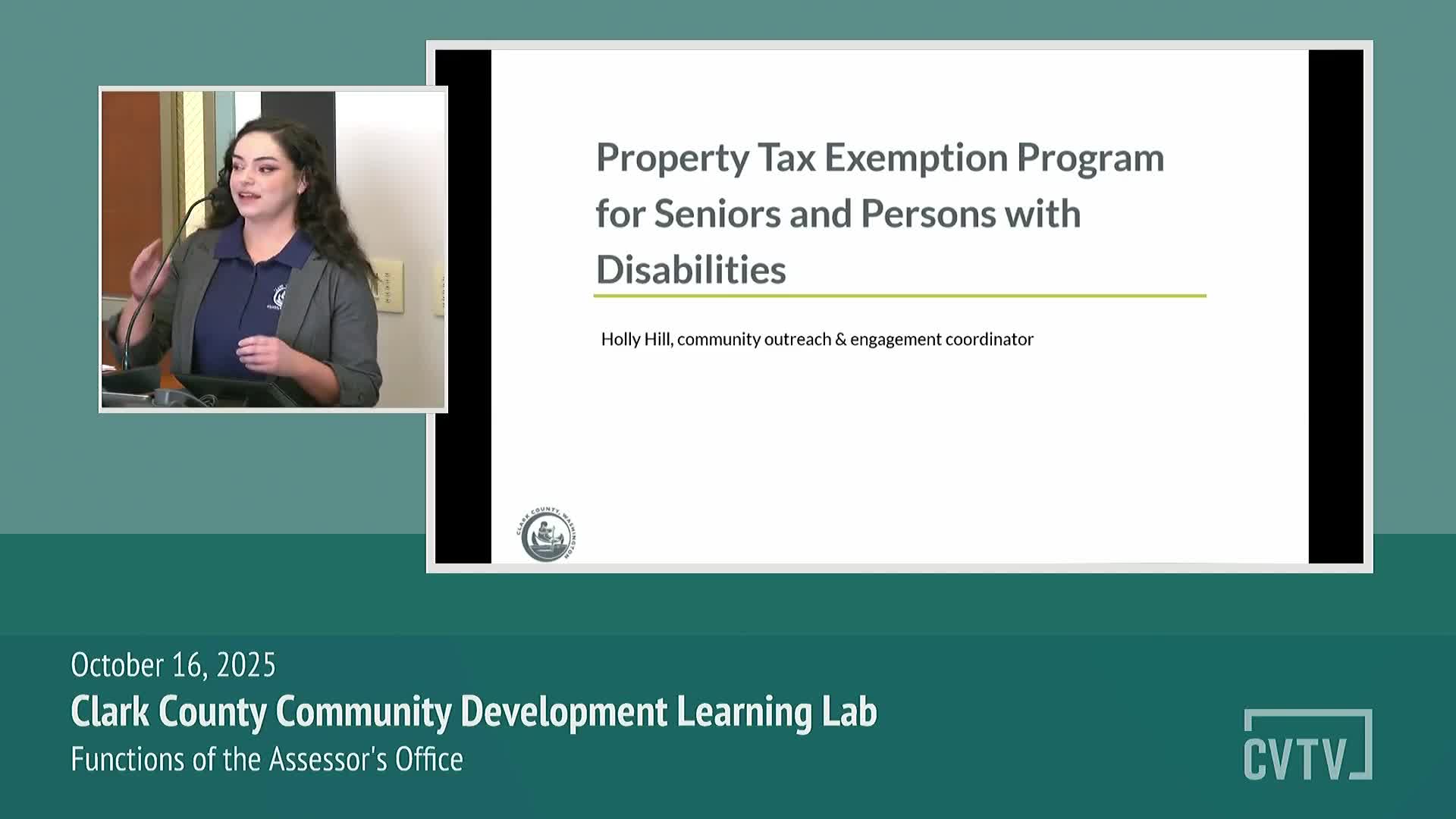Clark County details senior and disability property-tax exemption: eligibility, benefits and application
Get AI-powered insights, summaries, and transcripts
Subscribe
Summary
Clark County staff described the state-authorized senior/disabled property-tax exemption: eligibility rules, income tiers, documentation, program benefits (including levy exemptions and frozen assessed value), outreach steps and legislative authority.
Holly Hill, community outreach and engagement coordinator for the Clark County assessor's office, described the senior and disabled property-tax exemption program administered in Clark County, eligibility rules, documentation requirements and outreach options.
Hill said the program is established by the Washington State Legislature and administered with guidance from the Washington State Department of Revenue. The program reduces property-tax liability for qualifying low-income seniors and disabled homeowners, including exemption from voter-approved (excess) levies and the state school tax—part two—and freezes land and improvement values in the year of qualification.
Holly Hill, community outreach and engagement coordinator, said Clark County's 2023 population is about 521,000 and that roughly 23,000–24,000 county residents could potentially qualify for the program; about 9,400 people were enrolled at the time of the presentation. She said legislative updates are expected that will expand eligibility in coming years.
Qualification rules and benefits described at the session: - Ownership and residency: applicants must own and occupy the home as their principal residence; there is a six-month residency rule tied to the prior year for new owners. - Age or disability: eligibility requires age 61 or older (met in the year prior to application) or a qualifying disability (Social Security or VA disability, with VA specifics discussed). The office also accepts a medical affidavit from a physician when federal approvals are pending. - Income threshold: the current income limit is $62,000 (set at 70% of county median income and adjusted every three years). The program uses three income tiers; lower income tiers receive larger exemptions. - Benefits: qualified applicants are exempt from voter-approved/excess levies and certain state school taxes; their property's assessed land and improvement values are frozen at the qualifying year’s value; in tiers 1 and 2 applicants may be exempt from taxation on a portion of assessed value. - Property scope: accessory dwelling units (ADUs) were recently clarified by legislation to count as part of the residence for eligibility; acreage limits depend on zoning (commonly up to 1 acre; up to 5 acres in some zones).
Hill reviewed documentation requirements (photo ID, proof of income such as tax returns or 1099s, disability award letters or physician affidavits, documentation for deductions such as prescription drug costs over $500, and trust or divorce documents where ownership scenarios are nonstandard). She noted the office has an online portal for applications and cross-trained customer service specialists available in the joint lobby with the auditor and treasurer to assist.
During Q&A, Clark County Assessor Peter Van Nordwijk clarified that the program's rules—including whether to use assets as a qualification—are set by the state legislature. Residents asked about asset versus income tests; Van Nordwijk said changes would need action by the state legislature.
Holly Hill described outreach efforts including home visits for needy older residents and encouraged eligible property owners to contact the assessor's office for help applying. The presentation included a testimony describing a recipient who regained financial breathing room after enrollment.
